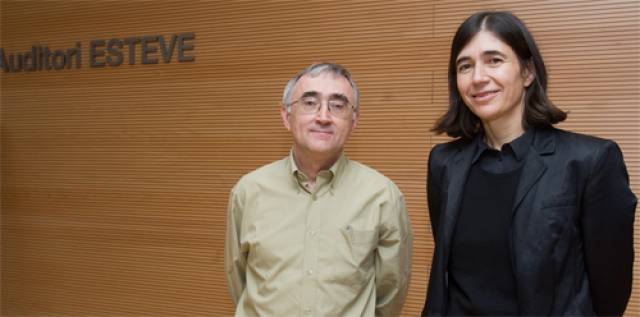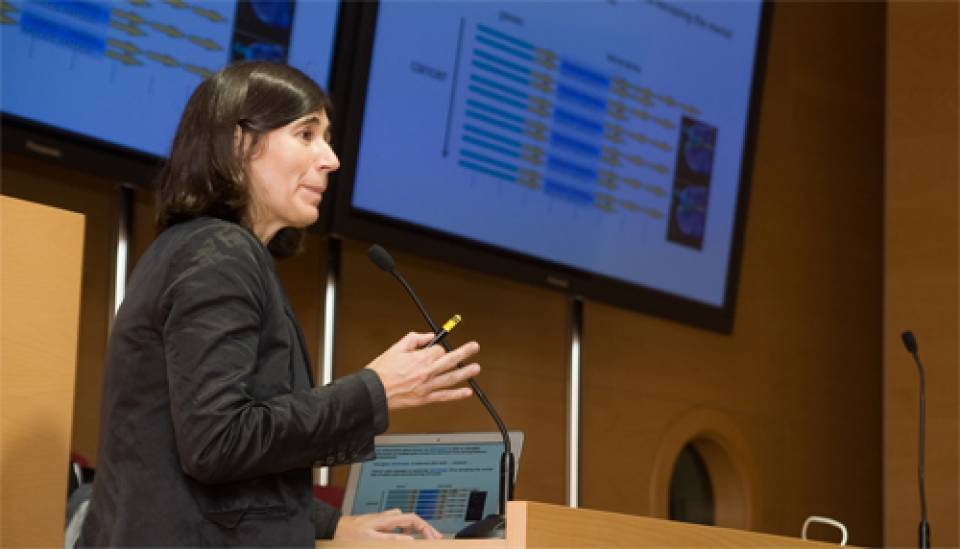With age our cells telomeres are shortened. These structures are located at the end of chromosomes and a portion of them is lost in each cell division. Genetics and environment influence the length of telomeres. In a paper published in Nature in 2009, the team led by Dr. María A. Blasco showed that cells with telomeres cut by repeated division cycles cannot be reprogrammed into pluripotent cells. The p53 protein plays a central role in the inability to reprogram cells with short telomeres, deficiencies in DNA repair or alterations of the genetic code caused by external aggressions.
During the conversation she spoke of how telomere shortening could be involved in many processes. In recent works she examines how the length of telomeres is related to different diseases such as cancer (Aging Cell) and depression (J Affect Disord). She also explained that other actors play an important role in these processes, in addition to the classic telomerase, an enzyme with the ability to lengthen telomeres, or p53 protein, altered in many malignancies. She spoke, for example, about shelterins, proteins that protect the ends of chromosomes.
Very early clinical trials are in course to study the application of telomerase as a drug. Although aging cannot be considered a disease, it may be the cause of many disease processes associated with aging. Different mechanisms are being studied to delay its effects on organisms. According to Dr. Elias Campo, a researcher from IDIBAPS and Spanish coordinator of the International Cancer Genome Consortium, underlined that Dr. Maria A. Blasco does not just basic, translational or clinical research. He defended she makes science of excellence with involvement in all areas, from basic to clinical, so we shall follow closely her investigations. Thanks to Dr. Campo’s invitation, IDIBAPS researchers had the opportunity to chat with her in a relaxed environment.
For more information, in a recent interview in Nature Medicine, Dr. Maria A. Blasco talks about her responsibilities as Director of the CNIO.


